Nghe An strives to promote the traditional cultural values of its festivals.
(Baonghean.vn) - The Lunar New Year is also the season for traditional festivals. On this occasion, Baonghean.vn had an interview with Mr. Bui Cong Vinh - Deputy Director of the Department of Culture and Sports - about the management and organization of festivals in the province.
PV:Sir, for many years, traditional festivals have been considered a bridge connecting the past with the present, one of the environments for educating about national traditions and culture, and a legitimate spiritual need of the people. So, could you elaborate on the nature and role of festivals in contemporary life?
Mr. Bui Cong Vinh:Among the treasure trove of intangible cultural heritage, festivals are a popular form of cultural heritage, deeply rooted in national identity, and consist of two parts: the ceremonial part and the celebratory part.
The ceremonial part includes rituals of worship and religious practices expressing respect and gratitude to the deities, and praying for their blessings and protection for bountiful harvests and a peaceful and happy life. The festive part is the space and time where cultural, religious, and artistic activities of the community take place.
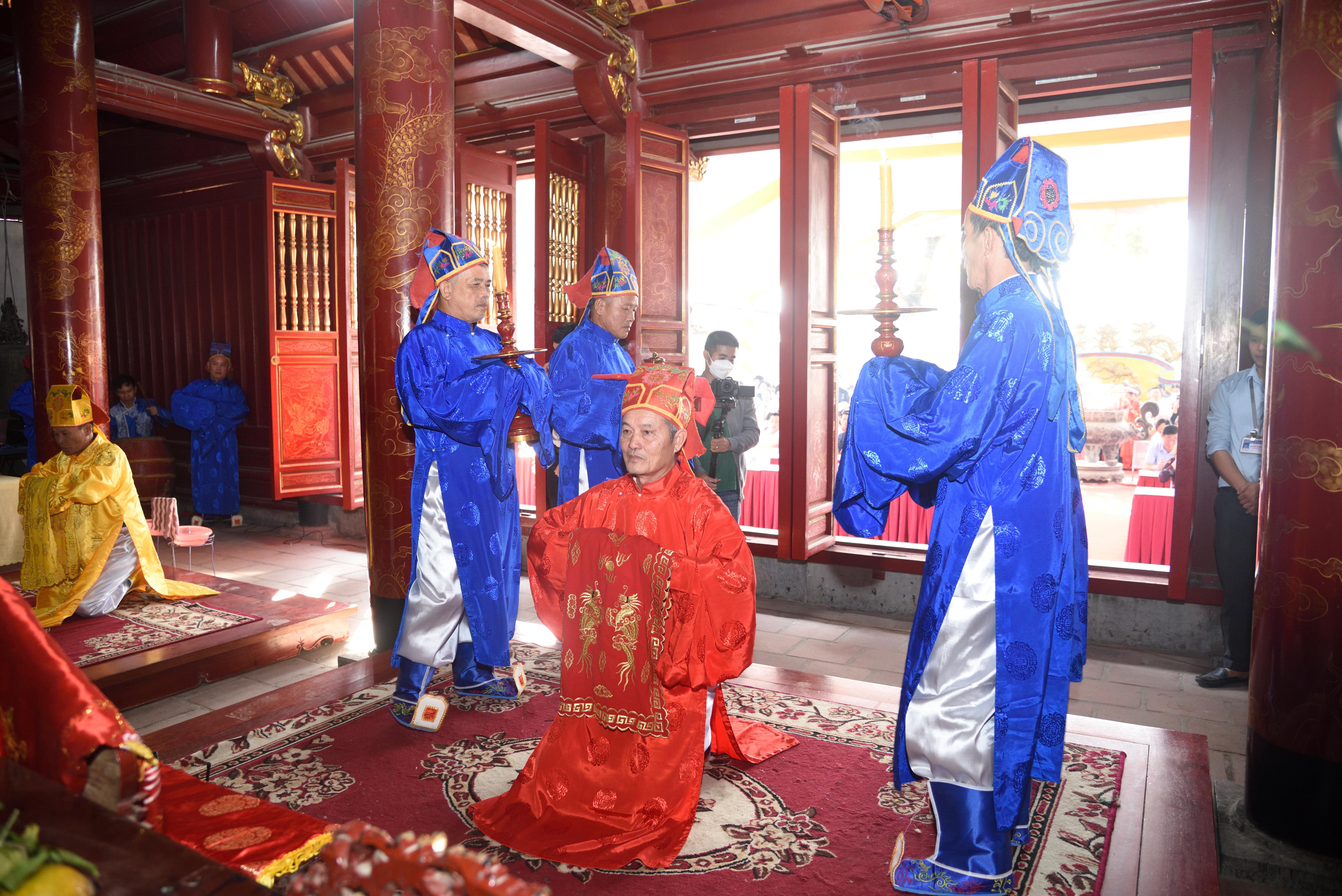
With their distinctive and highly collective activities, each festival possesses its own unique characteristics and embodies many beautiful cultural values, deeply rooted in national identity. Each festival focuses on a figure (or group of figures) considered sacred, worthy of respect, gratitude, and remembrance by future generations through various activities. These are renowned generals and virtuous officials who made significant contributions to protecting the nation and its people, and are worshipped in historical sites. Sometimes these are human deities, but many sites also worship nature deities, figures who made significant contributions to the development of the homeland, in labor and production, and closely connected to the lives of the people.
Therefore, the festival is an opportunity for the people to express their gratitude and honor the contributions of deities and national heroes. From this, it helps to educate future generations about the moral principles of "drinking water, remembering the source," and "eating the fruit, remembering the tree planter," raising community awareness, strengthening solidarity, mutual support, and helping each other within the community.
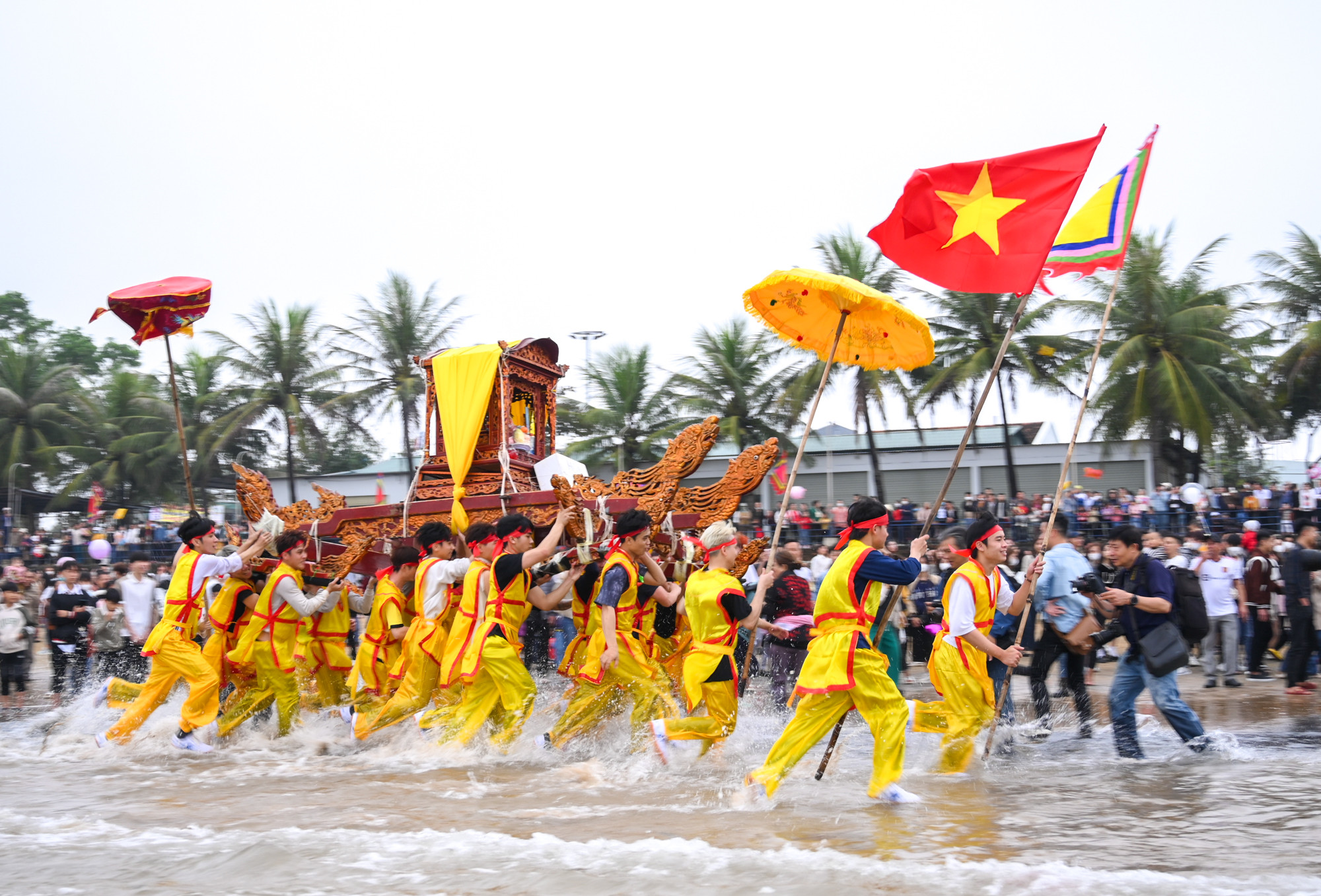
Festivals are cultural products that have been refined over a long period of time within the history of a community. They serve as a bridge between the past and the present, helping today's generation understand the contributions of their ancestors and fostering pride in the traditions of their homeland and country. Festivals also help to strengthen community cohesion and contribute effectively to building a cultured way of life at the grassroots level.
Therefore, preserving and promoting the cultural heritage of traditional festivals is an important and urgent task that contributes to safeguarding a rich national cultural identity, so that culture becomes a goal and driving force for sustainable socio-economic development.
PV:Nghe An is a land with a rich cultural and historical heritage, a large area encompassing coastal regions, plains, and mountainous forests, and a large population with six ethnic groups living together; therefore, Nghe An has many traditional festivals that reflect the unique characteristics of each region. Could you elaborate on this?
Mr. Bui Cong Vinh:According to the inventory of intangible cultural heritage from 2011 to 2021, Nghe An province has 78 traditional festivals, mainly taking place in communes, villages, and hamlets... with limited space and scale.
Nine festival heritages have been inscribed by the Ministry of Culture, Sports and Tourism on the National List of Intangible Cultural Heritage, including: the Nine-Room Temple Festival (Que Phong district), the Corn Temple Festival (Hoang Mai town), the Thanh Liet Temple Festival (Hung Nguyen district), the Qua Son Temple Festival (Do Luong district), the Ong Hoang Muoi Temple Festival (Hung Nguyen district), the Bach Ma Temple Festival (Thanh Chuong district), the Xang Khan Ceremony of the Thai ethnic group in Western Nghe An, the Yen Luong Temple Festival (Cua Lo town) and the Nguyen Canh Hoan Temple Festival (Do Luong district).
Like many other places, traditional festivals in Nghe An mainly take place in the first three months of the year, with a few occurring at the end of the year. Spring, when the farming season is relatively slow, is also the beginning of the new season, so people hold festivals to pray for a year of favorable weather, calm seas, and success in farming and agriculture.
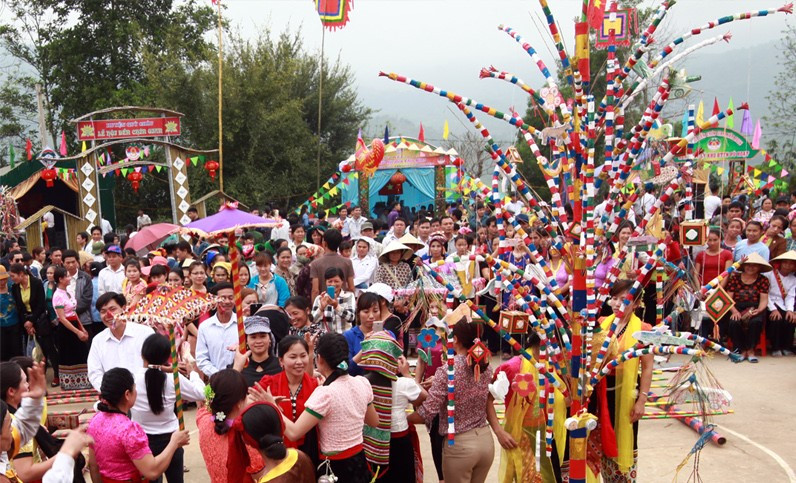
Along with traditional festivals, cultural festivals, village festivals, clan festivals, processions of Certificates of Recognition for Historical and Cultural Relics, cultural titles, and folk rituals of ethnic minorities associated with ethnic customs and practices that have been restored and organized by the people, have contributed to the development of cultural life at the grassroots level.
PV:How would you assess the management and organization of festivals in the province in recent years? Also, could you please tell us about the plans for organizing the festival in 2024?
Mr. Bui Cong Vinh:Over the years, especially since the Government's Decree No. 110/2018/ND-CP dated August 29, 2018, came into effect, the management and organization of festivals in Nghe An have received attention from all levels of government and guidance from specialized agencies. As a result, negative incidents affecting the cultural environment of festivals have been relatively rare. Recreational activities within the festivals generally adhere to traditional customs and practices, are appropriate to the cultural context of the festival, and contribute to a joyful and vibrant atmosphere.
Many traditional rituals and customs of the people of Nghe An are expressed in traditional festivals, making the festivals distinctly regional and a unique feature that attracts a large number of people to participate and enjoy. Through the organization of festivals, cultural exchange is created, contributing to the promotion of traditional national culture, the image of the homeland and people of Nghe An.
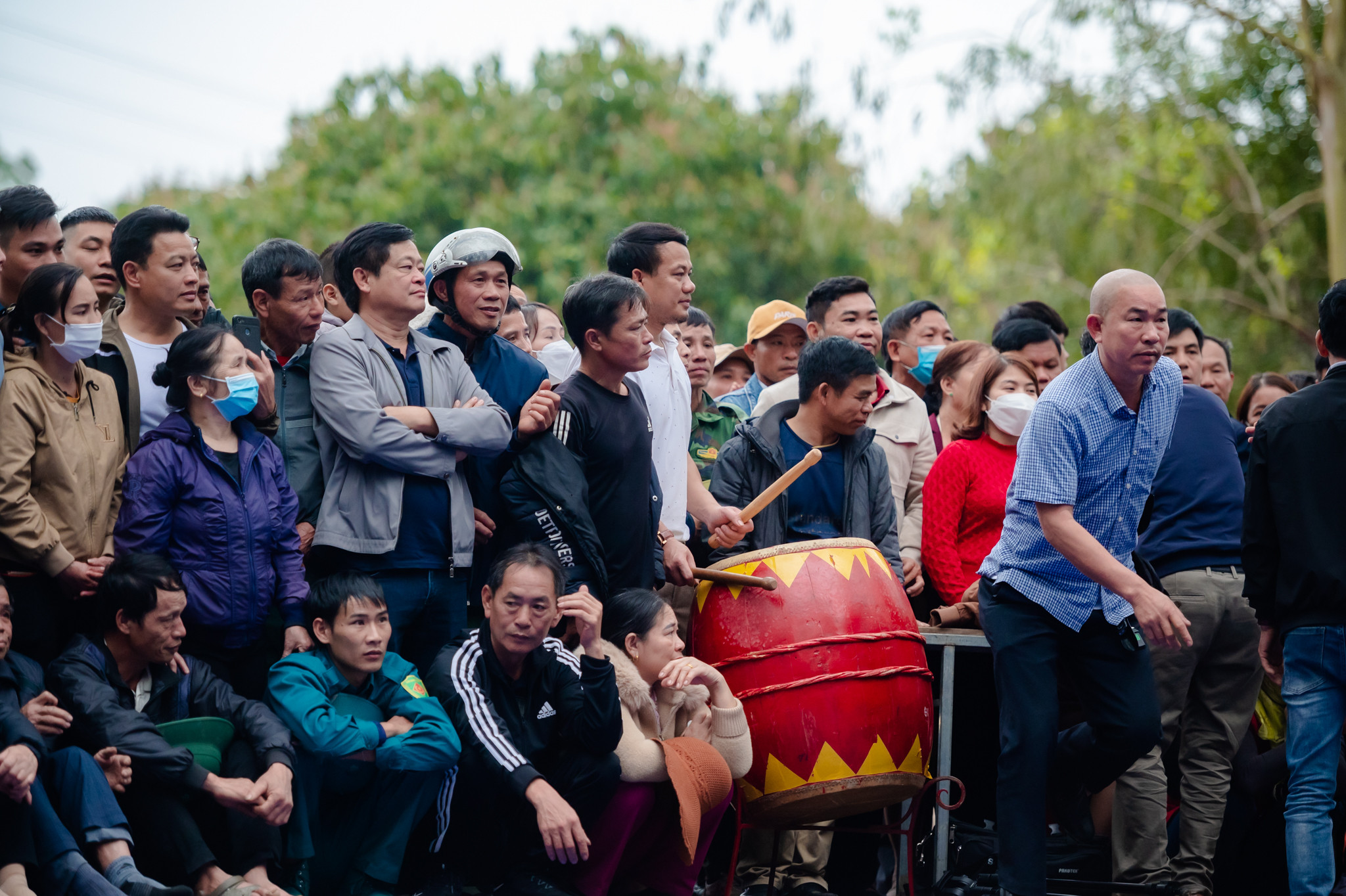
However, alongside the positive aspects, traditional festival activities in Nghe An still have some shortcomings and limitations. The festival culture in the province is diverse in terms of regional and ethnic identities, but some festivals, especially those in the lowlands, are mostly organized according to a common pattern, with overlapping scenarios; in-depth research and exploration of festival traditions and the cultural identity of each locality to create differences and highlights for festivals have not been thoroughly implemented. Commercial and tourism activities, and services for visitors integrated into festival organization, are still monotonous and not attractive to tourists.
The work of disseminating information and mobilizing people to comply with regulations, maintain the solemnity of places of worship, and ensure environmental hygiene has not been thorough. Therefore, the awareness of some festival participants regarding compliance with regulations, maintaining the solemnity of places of worship, and environmental hygiene is still low. There are still instances of crowding and pushing during festivals, inappropriate attire, littering causing environmental pollution; and the persistent problem of soliciting the sale of offerings, writing prayers, and fortune-telling.
To effectively and efficiently manage state affairs related to festivals, the Department of Culture and Sports issued Notice No. 176/TB-SVHTT dated January 16, 2024, regarding...Plan for organizing festivals in 2024Accordingly, in 2024, the entire province will have 27 festivals included in the management list, of which 21 festivals take place in the spring (January-March in the lunar calendar), and the rest take place at other times of the year (from April to October in the lunar calendar). Local authorities will have specific plans for each festival to ensure that they are organized according to the principles stipulated by law, namely being solemn, practical, effective, and appropriate to the scale and content of the festival.
Previously, the Department also advised the Provincial People's Committee to issue Official Letter No. 164/UBND-VX dated January 9, 2024, on strengthening the management and organization of festivals in 2024. This letter requested provincial departments, agencies, and organizations; the People's Committees of districts, cities, and towns; and the People's Committees of communes, wards, and townships with festival activities to strictly implement the Government's regulations on festival management and organization; ensuring that festival activities are organized solemnly, in accordance with traditional rituals, practically, safely, economically, in line with civilized lifestyles, and preserving and promoting the cultural traditions of the nation and the good customs and practices of the locality.
PVTo effectively manage festivals and overcome the aforementioned limitations, what solutions do we need, sir?
Mr. Bui Cong Vinh:To ensure that the festival serves as a cultural space where people can relax, admire, and enjoy wholesome spiritual rituals, thereby guiding people towards positive values and fostering pride and awareness of valuable traditional cultural values, the Department of Culture and Sports will strengthen coordination with local authorities in directing, managing, and guiding all festival activities.
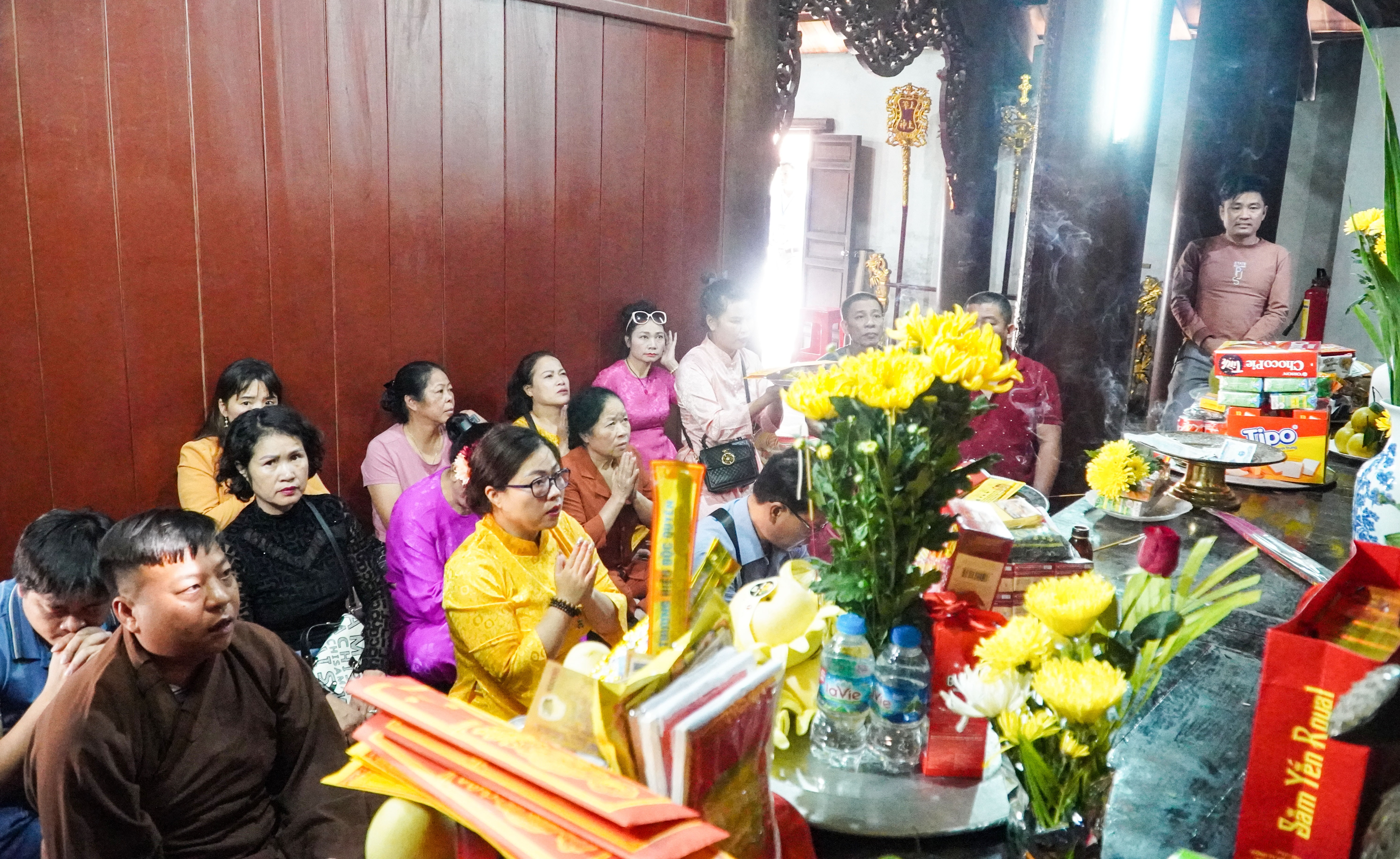
This includes focusing on promoting and introducing the festival, ensuring that it both showcases the unique characteristics of the festival and raises public awareness of its importance for participation. It also involves encouraging people and tourists to participate in the festival, especially businesses providing services within the festival, to be mindful of environmental protection, preservation of historical sites, and civilized behavior during spiritual activities and festivals, avoiding price gouging and aggressive soliciting of customers.
Furthermore, it is necessary to strengthen inspection, examination, and supervision before, during, and after the organization of festivals, promptly preventing and strictly handling violations, especially acts of exploiting historical sites and festivals for personal gain, inciting violence, and circulating and trading illegal cultural products; preventing the organization of star-worshiping and misfortune-averting rituals from being distorted into profit-making services at festivals and historical sites, especially at the beginning of the year; preventing acts of exploiting festivals for illicit profit, resolutely preventing acts of crowding,抢夺 (scrambling/grabbing), superstitious activities, disguised gambling, begging, money exchange services with inflated prices; excessively loud music, chaotic situations during ritual practices at historical sites and festivals, and the widespread organization of festivals causing waste and inefficiency, violating regulations on civilized conduct.
In the long term, the Ministry of Culture and Sports will focus on supporting localities in teaching and practicing traditional religious rituals to prevent their disappearance; developing systematic and in-depth research programs and projects on traditional festivals as a basis for conservation, preservation, and promotion of festival heritage; and emphasizing training for monument management staff and festival organizers, improving the management and organizational capacity of grassroots cultural officials.
Mr. Bui Cong Vinh - Deputy Director of the Department of Culture and Sports
Interviewer: Thank you for the interview!



